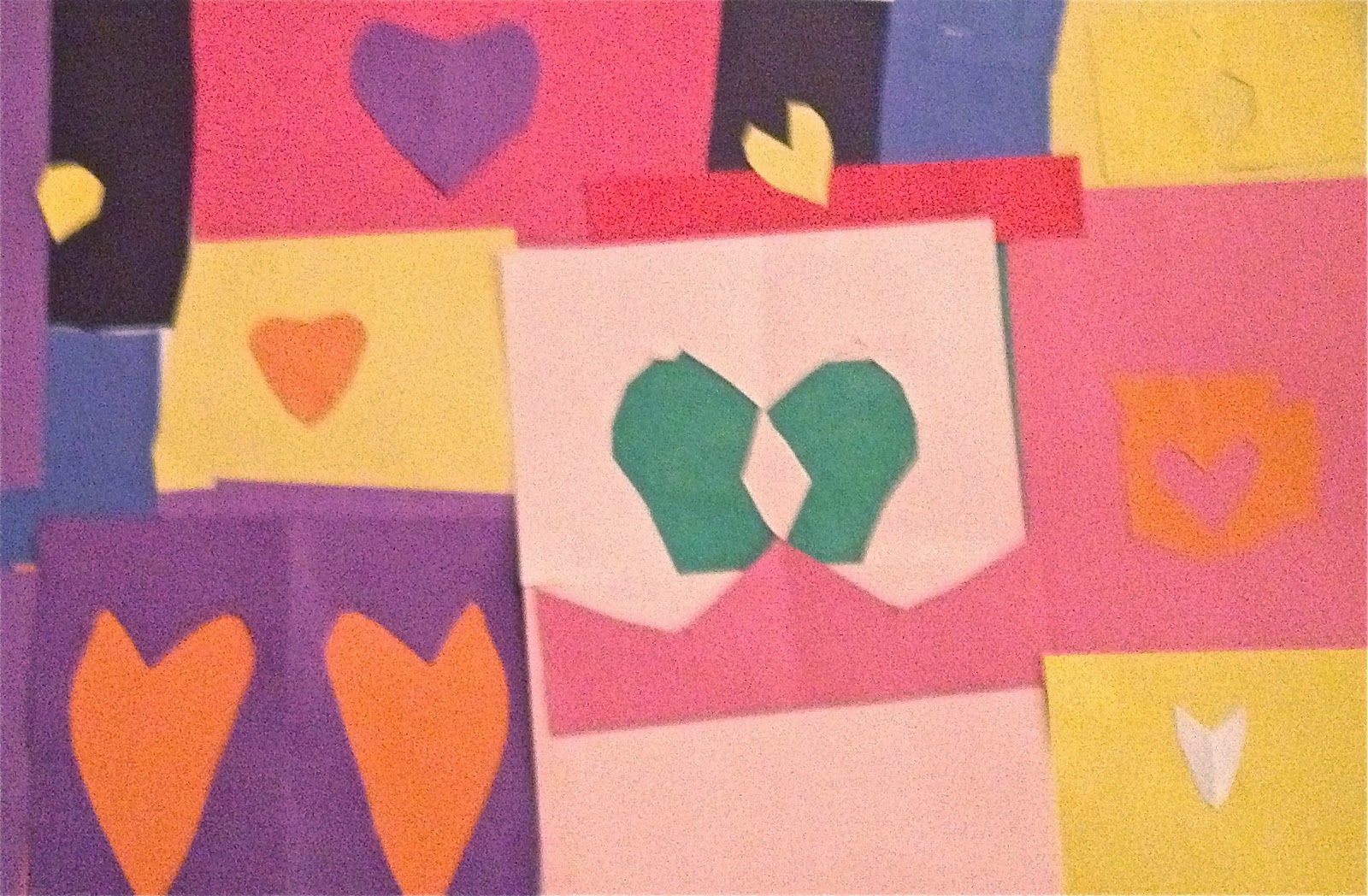
Art at Walden Green Henri Matisse Collage
Although he was initially labeled as a Fauve (wild beast), by the 1920s, he was increasingly hailed as an upholder of the classical tradition in French painting. [1] His mastery of the expressive language of color and drawing, displayed in a body of work spanning over a half-century, won him recognition as a leading figure in modern art . Paintings
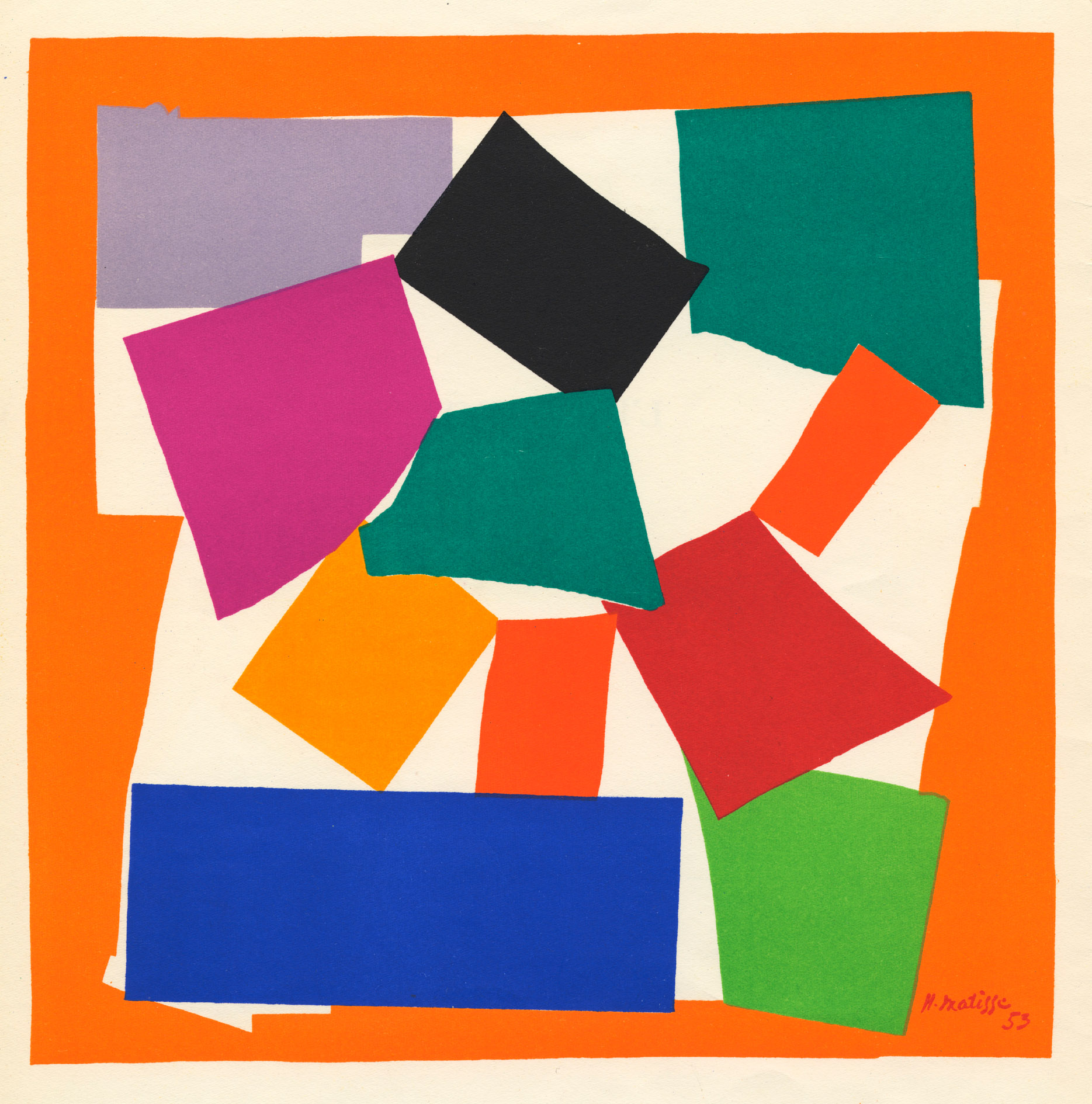
Matisse. Drawing with Scissors Late Works 19501954 The New Art Gallery Walsall
Henri Matisse (1869-1954) did not grow up wanting to be an artist; he intended to be a lawyer. But when he fell ill and was bedridden for several months, he began to paint, and eventually moved to Paris to work as an artist. As an artist, Matisse loved color—bright, pure color. He and fellow artist Georges Braque founded an artists group called the "fauves"—the beasts, so called.
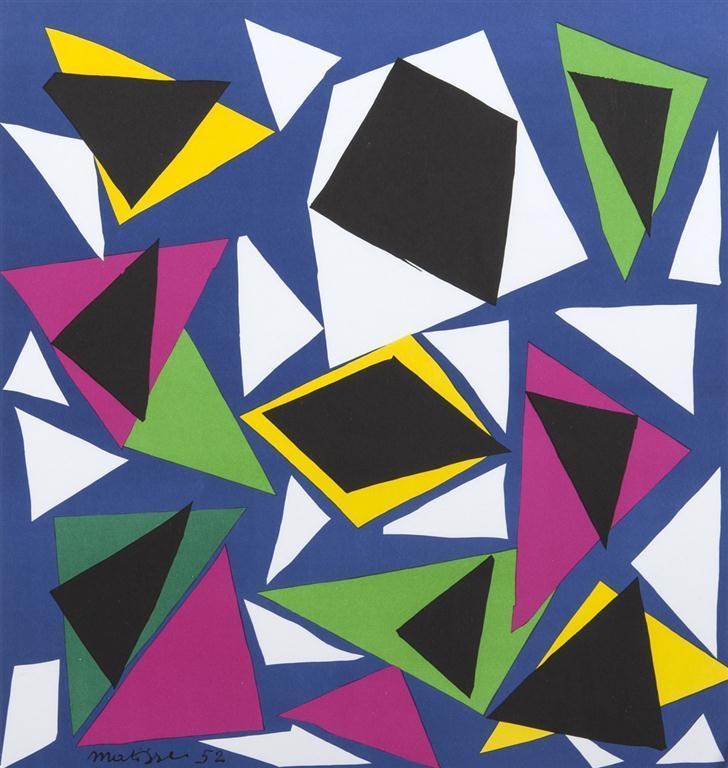
Henri MATISSE Collages, Lithographie Art Moderne Plazzart
Henri Matisse. Throughout his decades-long career as a painter, sculptor, draftsman, and printmaker, Henri Matisse continuously searched, in his own words, "for the same things, which I have perhaps realized by different means." 1 Celebrated as both an orchestrator of tonal harmonies and a draftsman capable of distilling a form to its.
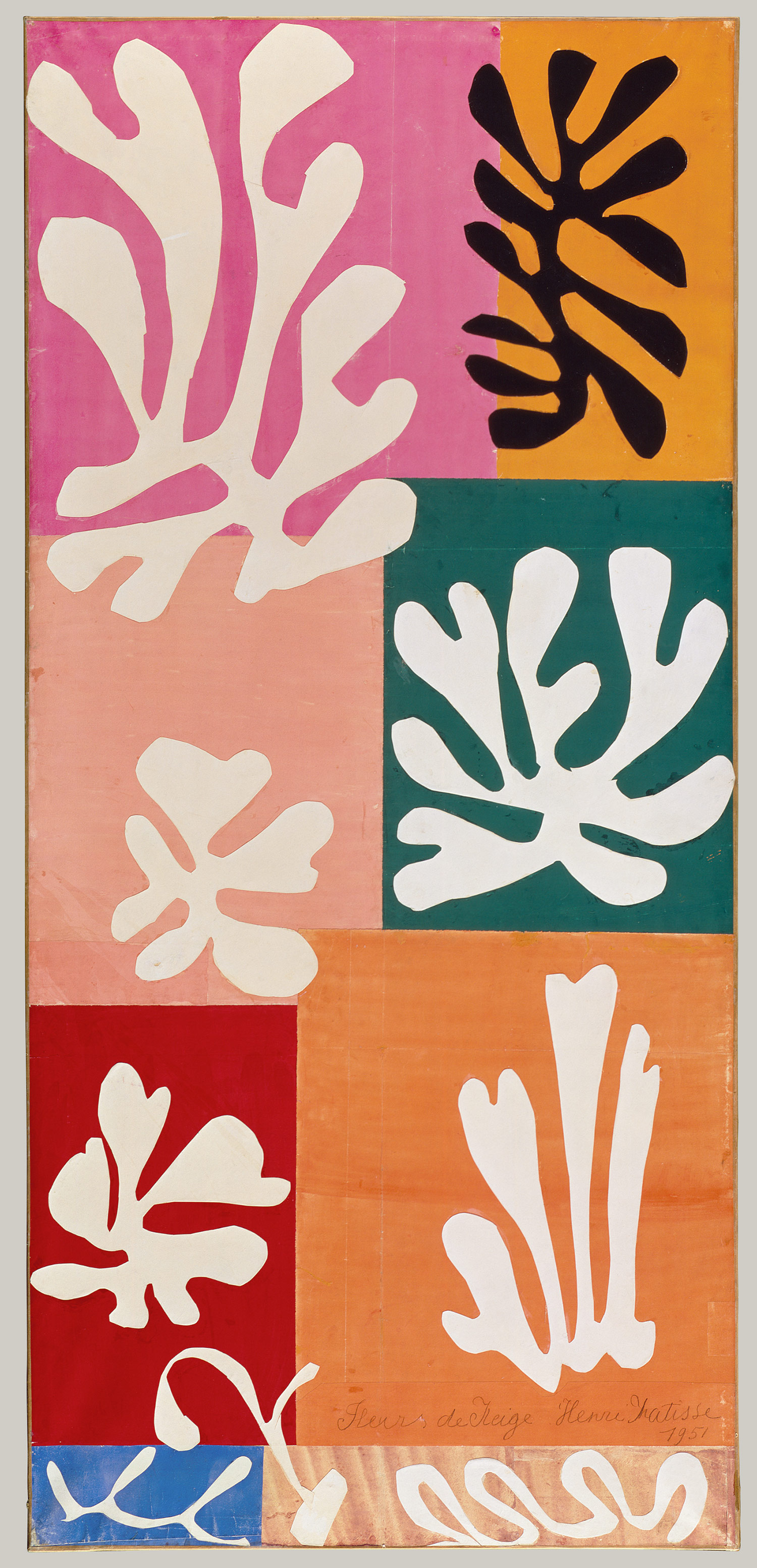
Waitsfield Elementary Art Inspired by Matisse Third and Fourth Grade Collages
Henri Émile Benoît Matisse ( French: [ɑ̃ʁi emil bənwa matis]; 31 December 1869 - 3 November 1954) was a French visual artist, known for both his use of colour and his fluid and original draughtsmanship. He was a draughtsman, printmaker, and sculptor, but is known primarily as a painter. [1]

Henri Matisse Painting with Scissors .Collage Yr 9. Matisse Paintings, School Displays, Art Camp
Henri Matisse (born December 31, 1869, Le Cateau, Picardy, France—died November 3, 1954, Nice) artist often regarded as the most important French painter of the 20th century.
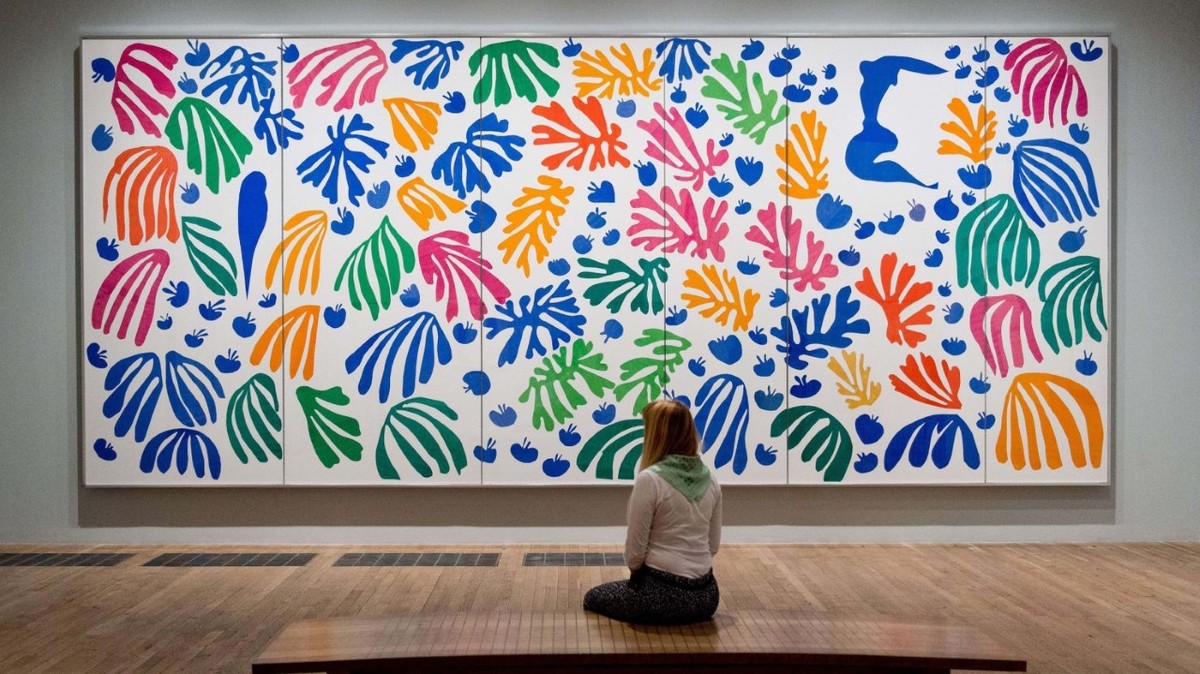
Matisse, el artista que sobrevivió dos veces y pintó la alegría Divagancias
The Sorrows of the King is a collage using cut out paper shapes by Henri Matisse from 1952. It was made from paper he had coloured with gouache paint and is mounted on canvas. Its size is 292 x 386 cm. It is his final self-portrait. During the early-to-mid-1940s Matisse was in poor health.

henri matisse collages Google Search collage cutout stencil Pinterest Matisse, Collage
Collage offered him a new medium to experiment with color in a bold and spontaneous way. How Collage Allowed Him to Experiment With Form In addition to his fascination with color, Matisse was also interested in exploring form and composition in his work.
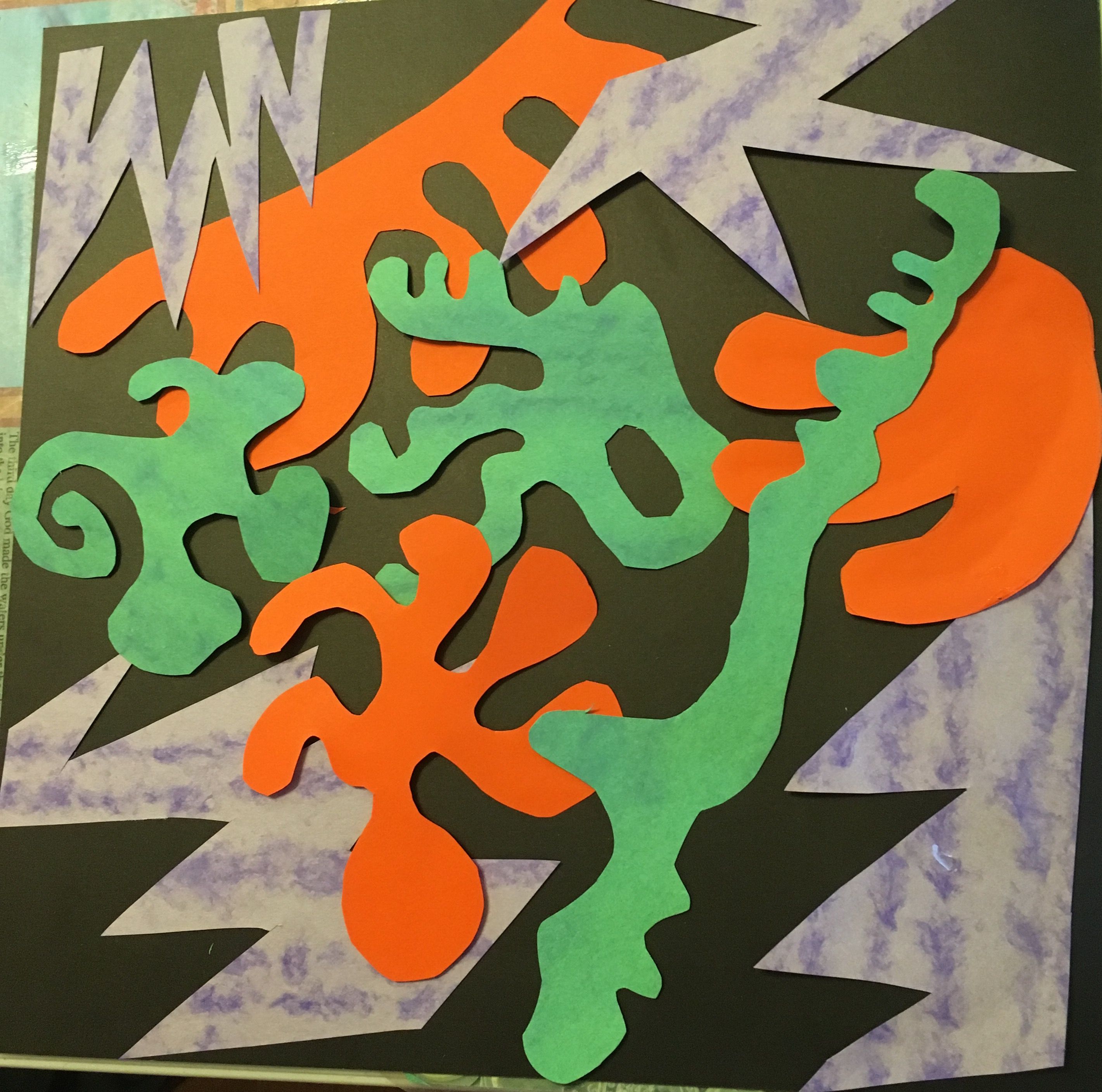
Henri Matisse Paper Collage Small Online Class for Ages 812 Outschool
TWO NEW EPISODES UPLOADED EVERY WEEK! Subscribe to view.FOLLOW @Artlife. Art lessons on Facebook and TAG us in any artworks you create from our videos. DISCO.
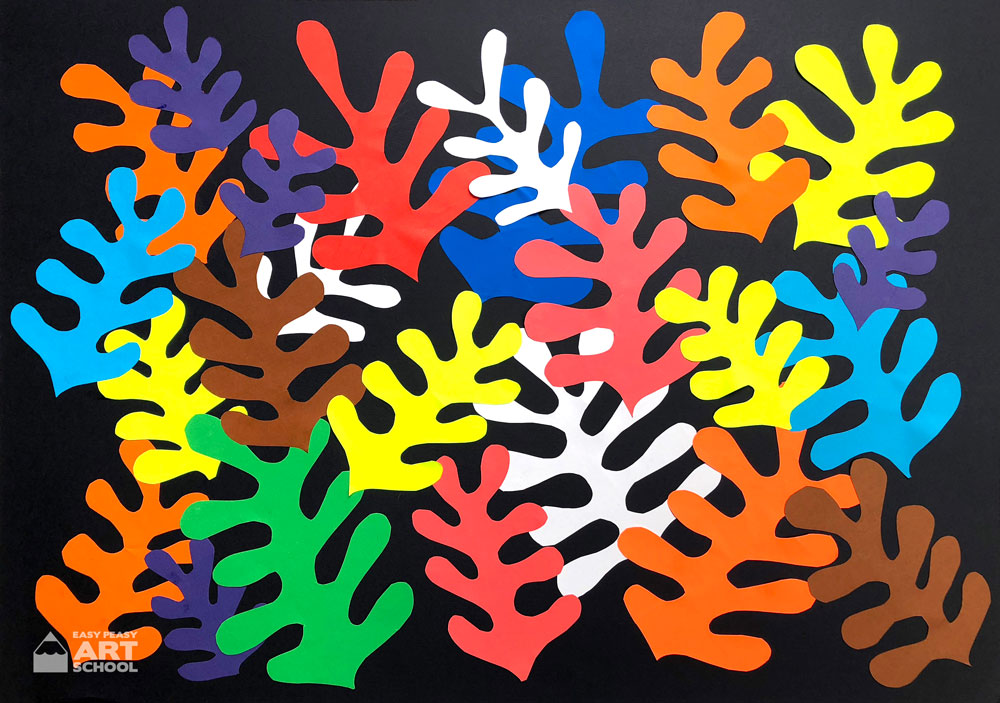
HenriMatisseCollage Easy Peasy Art School
Henri Matisse is a French artist known for making colourful works of art. He used a variety of materials in his work, including paint, bronze (for his sculptures), and he also made drawings using charcoal. As Matisse became older, he began to work with brightly coloured paper and would 'paint with scissors' to cut out shapes, animals.
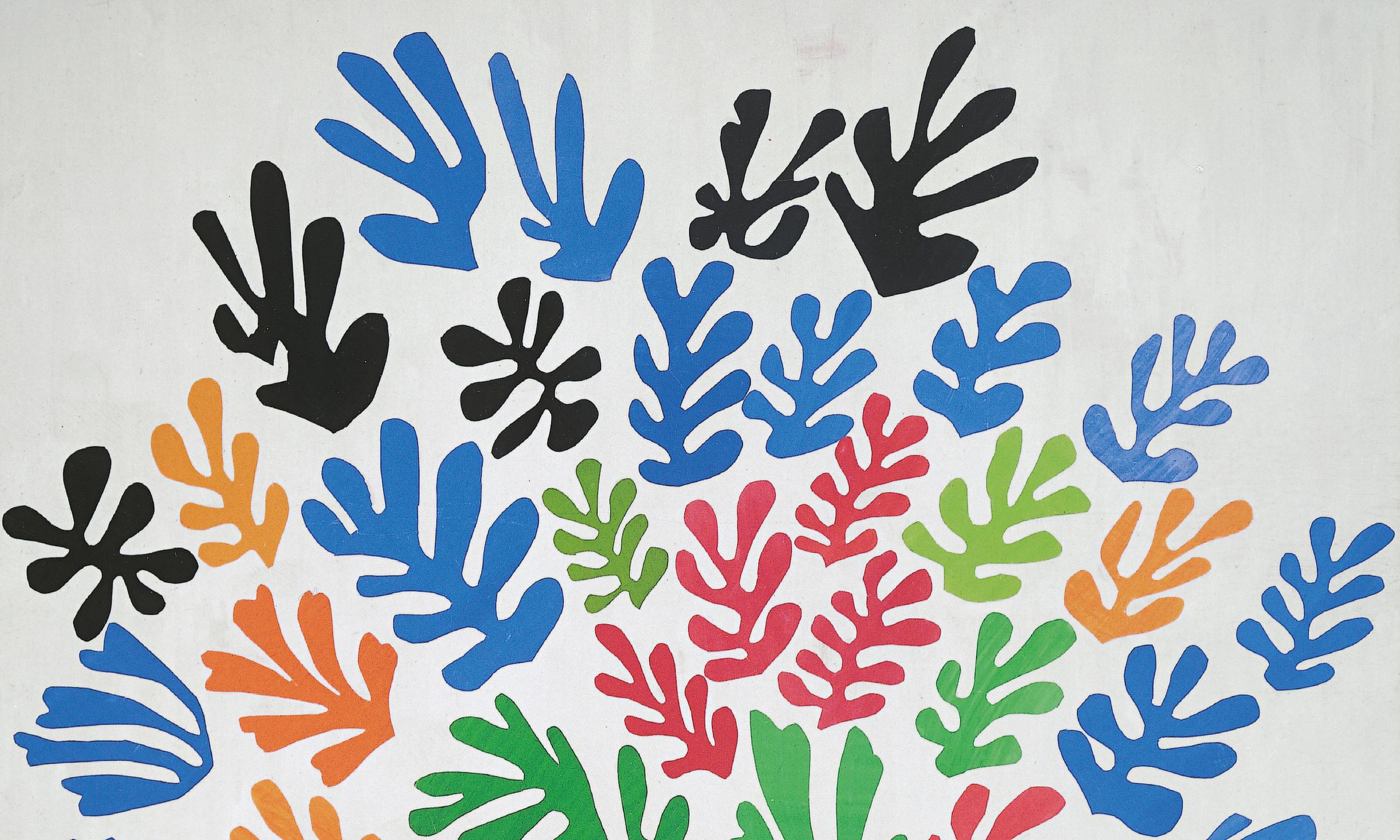
Matisse Nicholas Serota on curating a 'onceinalifetime' exhibition Art and design The
Matisse said that he was never truly expressing himself until he started to work with collages. His cut-outs comprise some of his most famous work and also represents the artist at his most expressive, despite being restricted by age and movement.

doodles&noodles Matisse Collages Guitar art project, Henri matisse, Elementary art projects
In the late 1940s, in the last decade of his life, Henri Matisse made a significant shift in his artistic methodology and turned to cut paper as his primary medium, using scissors as his tool. His new creations were called cut-outs. Using gouache paint, Matisse would colour sheets of paper and cut these sheets into different shapes and sizes.

Henri Matisse Collection IV Henri matisse, Matisse, Collage art
The Snail is a collage made from pieces of brightly painted paper that have been cut out and stuck onto a canvas. But Matisse also made paintings and sculptures. This painting was made much earlier in Matisse's life. It more realistic than The Snail, and the colours are definitely not as bright.

Pin on Art Lessons
The Snail (L'escargot) is a collage by Henri Matisse. The work was created from summer 1952 to early 1953. It is pigmented with gouache on paper, cut and pasted onto a base layer of white paper measuring 9'4 3⁄4 " × 9' 5" (287 × 288 cm). The piece is in the Tate Modern collection in London. [1] Description and background

henri matisse collage Google Search COLLAGE Pinterest Cut paper, Paper collages and Collage
Painting the Paper The color on Matisse's cut-outs is produced using gouache—a water-based, opaque, quick-drying, matte paint that consists of pigment, binder, and often a white pigment or filler to increase opacity. Matisse purchased a wide range of colors at supply houses in both Paris and Nice, choosing tubes based on color and freshness.
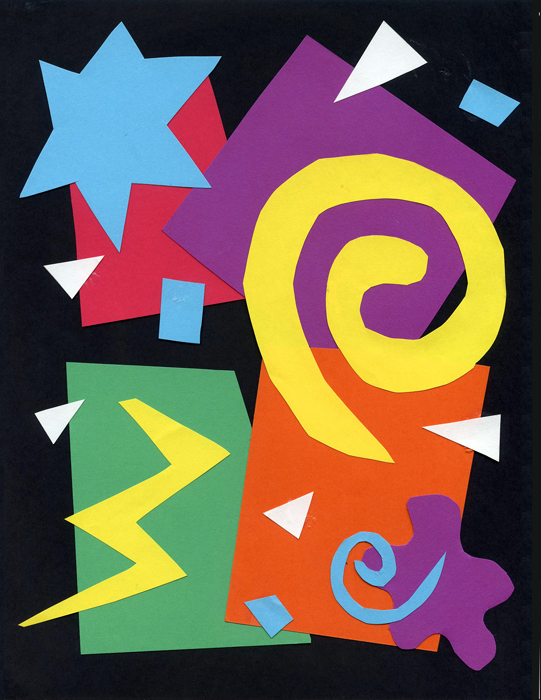
Make a Matisse Collage Art Projects for Kids
What do Henri Matisse's Collages Mean? | Tate Kids - YouTube 0:00 / 1:54 What do Henri Matisse's Collages Mean? | Tate Kids Tate Kids 18.6K subscribers Subscribe 59K views 7 years ago We.

Pin on Art
Henri Matisse was a French painter, draftsman, sculptor, and printmaker. Known for his use of color, his work is regarded as responsible for laying the foundation for modern plastic arts, along with the work of Pablo Picasso and Marcel Duchamp. At the age of 18, he went to study law, working as a court administrator.